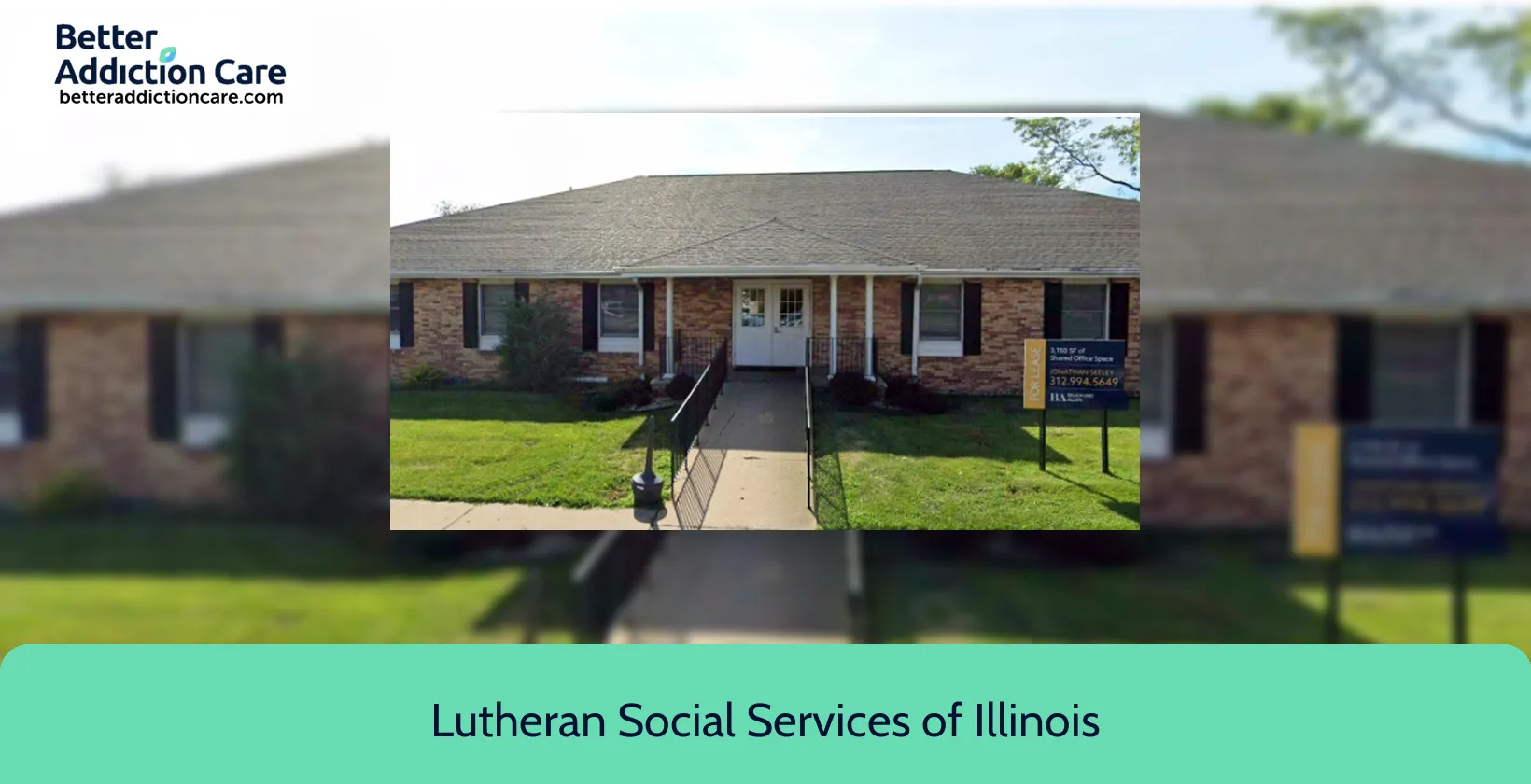Overview
A non-profit company called Lutheran Social Services, with its headquarters in Sterling, Illinois, offers comprehensive treatment to those struggling with alcoholism, opiate addiction, and co-occurring mental health illnesses, among other drug misuse issues. The mainstay of their treatment strategy is flexible outpatient addiction therapy, which enables patients to continue living at home while getting consistent, organized care. With the help of this outpatient approach, people may continue with their regular activities while receiving the assistance they need to deal with their addiction.
For people in need of further assistance, Lutheran Social Services provides more intense care alternatives in addition to its outpatient services. These consist of relapse prevention techniques and rigorous outpatient programs that provide people the skills they need to sustain long-term recovery and avoid relapsing.
The center also emphasizes the need of offering customized treatment via programs that are specifically designed to target certain demographics. Men get gender-specific addiction therapy that tackles their issues, while women receive tailored care that meets their particular needs and experiences. Furthermore, Lutheran Social Services provides age-appropriate therapy for teenagers, making sure that they get the expert assistance they need to deal with addiction and associated problems.
Lutheran Social Services is well-known for its dedication to providing efficient addiction treatment and for its high standards of care. The Substance Abuse and Mental Health Services Administration (SAMHSA) has listed the organization, attesting to its compliance with national requirements for quality treatment. Furthermore, the facility's complete Illinois licensure attests to its commitment to providing those in need with high-quality care.
Lutheran Social Services of Illinois at a Glance
Payment Options
- Cash or self-payment
- Medicaid
- State-financed health insurance plan other than Medicaid
- Private health insurance
- Sliding fee scale (fee is based on income and other factors)
Assessments
- Screening for tobacco use
- Comprehensive mental health assessment
- Comprehensive substance use assessment
- Interim services for clients
- Outreach to persons in the community
Age Groups
- Adolescents
- Young adults
- Children/adolescents
- Adults
Ancillary Services
- Case management service
- Integrated primary care services
- Suicide prevention services
- Specially designed program for DUI/DWI clients
- Mental health services
Highlights About Lutheran Social Services of Illinois
7.02/10
With an overall rating of 7.02/10, this facility has following balanced range of services. Alcohol Rehabilitation: 8.00/10, Drug Rehab and Detox: 6.00/10, Insurance and Payments: 6.00/10, Treatment Options: 8.06/10.-
Treatment Options 8.06
-
Alcohol Rehabilitation 8.00
-
Drug Rehab and Detox 6.00
-
Insurance and Payments 6.00
Accreditations
Council on Accreditation (COA):
The Council on Accreditation (COA) is a non-profit that provides accreditation to human services organizations to ensure they meet high standards in service delivery. The accreditation process involves evaluating the organization's policies, practices, and services to meet specific standards.
SAMHSA certification for opioid treatment program (OTP):
SAMHSA's Opioid Treatment Programs (OTP) accreditation is a prestigious recognition that signifies a program's compliance with stringent standards and guidelines established by the Substance Abuse and Mental Health Services Administration (SAMHSA). This accreditation demonstrates an OTP's commitment to providing high-quality, evidence-based care for individuals struggling with opioid use disorder (OUD). It serves as a trusted symbol of accountability and excellence, assuring patients, families, and communities that the OTP offers safe, effective, and comprehensive treatment options for OUD.
State department of health:

Government agencies issue State Licenses, granting permission to rehabilitation organizations to conduct their business operations lawfully within specific geographic regions. Generally, the particular rehabilitation programs offered by a facility and its physical location dictate the necessary licenses needed for legal operation.
Treatment At Lutheran Social Services of Illinois
Treatment Conditions
- Alcoholism
- Mental health treatment
- Substance use treatment
- Co-occurring Disorders
- Opioid Treatement
Care Levels
- Outpatient
- Intensive outpatient treatment
- Regular outpatient treatment
- Aftercare
- Detoxification
Treatment Modalities
- Cognitive behavioral therapy
- Telemedicine/telehealth therapy
- Substance use disorder counseling
- Trauma-related counseling
- Smoking/vaping/tobacco cessation counseling
Ancillary Services
Additional Services
- Pharmacotherapies administered during treatment
- Mentoring/peer support
- Breathalyzer or blood alcohol testing
Special Programs
- Clients with co-occurring mental and substance use disorders
- Criminal justice (other than DUI/DWI)/Forensic clients
- Pregnant/postpartum women
- Clients who have experienced trauma
- Clients who have experienced sexual abuse
Contact Information
Read our Most Recent Article About Drug Addiction
DISCLAIMER: The facility name, logo and brand are the property and registered trademarks of Lutheran Social Services of Illinois, and are being used for identification and informational purposes only. Use of these names, logos and brands shall not imply endorsement. BetterAddictionCare.com is not affiliated with or sponsored by Lutheran Social Services of Illinois.









